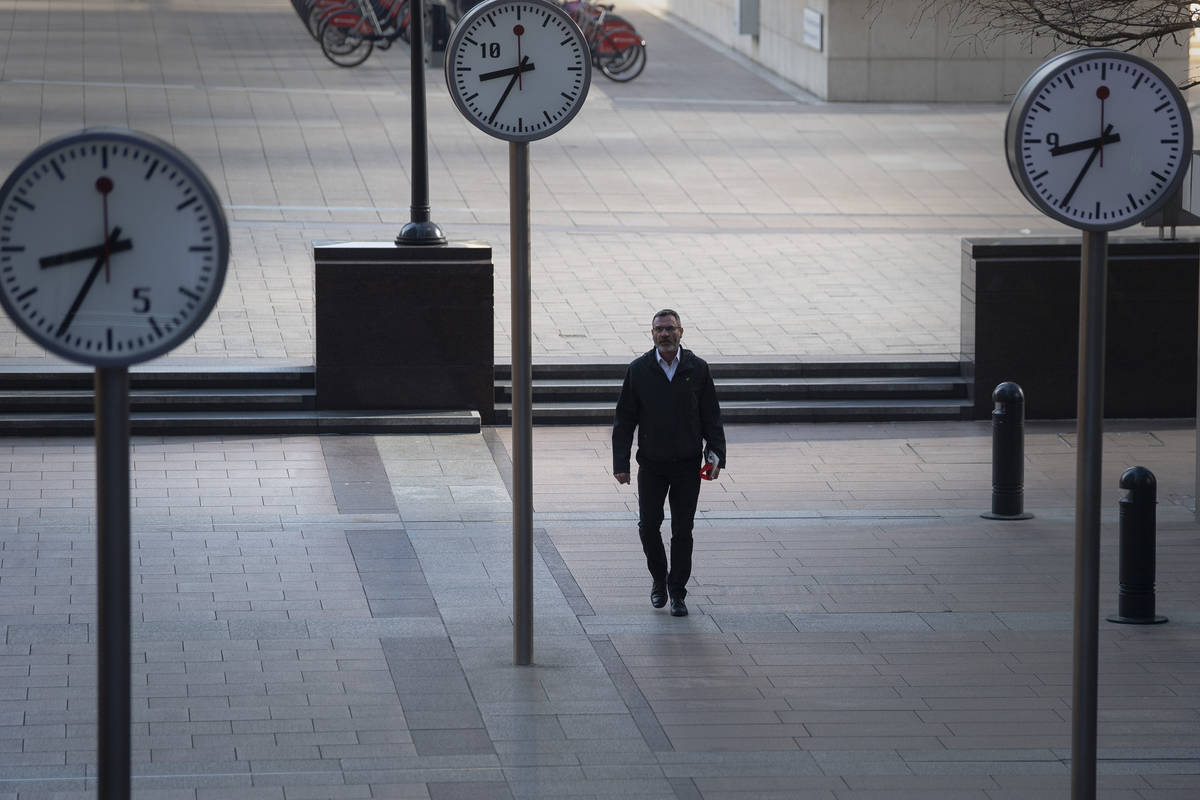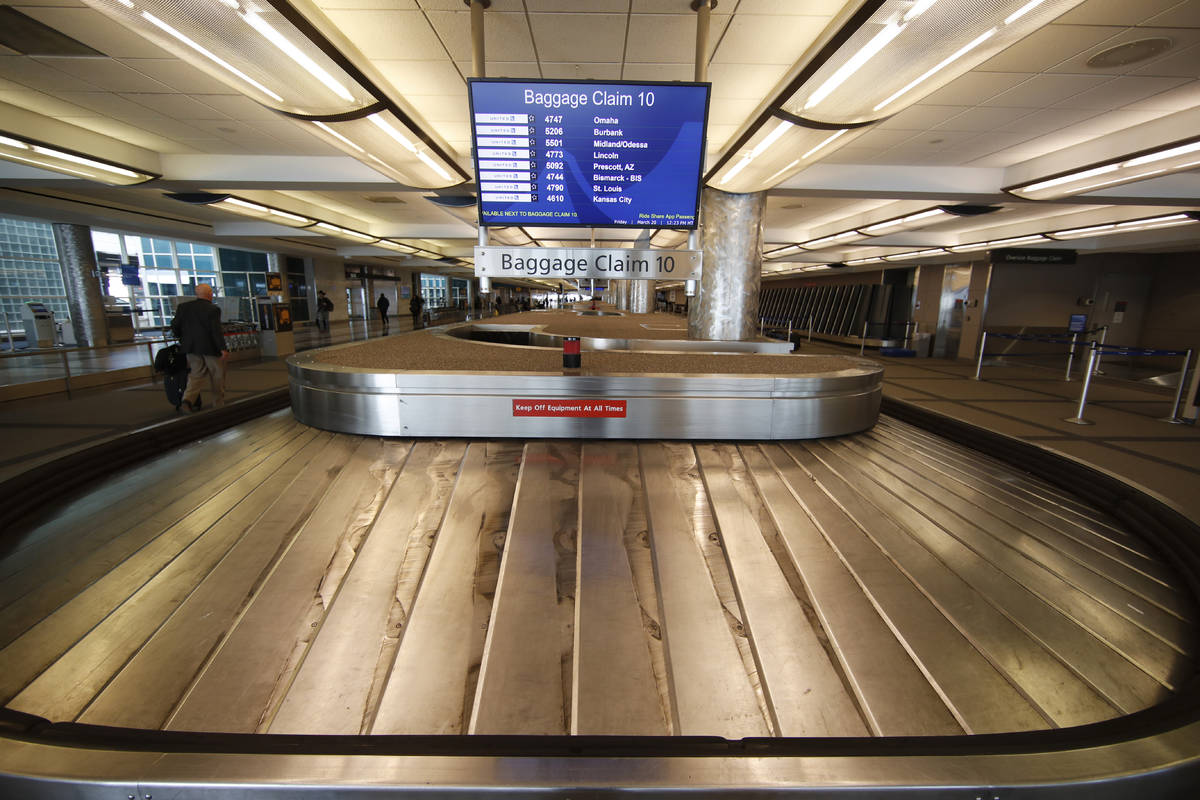Virus fallout: 1st signs of disruption appear in housing
The outbreak of the new coronavirus has dealt a shock to the global economy with unprecedented speed as it continues to spread across the world. Here is a look at some of the latest developments Wednesday related to the global economy, particular economic sectors, and the workplace:
Housing
Economists have been waiting for the first signs of virus-related disruptions in housing with the expectation that they will be seismic. Federal housing data looks further back for trends, meaning there is a lag in real world activity. But details have begun to emerge in private surveys.
On Wednesday, the Mortgage Bankers Association reported that mortgage applications plunged 29.4% last week.
People trying to sell homes have cancelled showings during the outbreak and because closings are done in person, economists expect sales will decline sharply. But the virus has affected the market in other, unforeseen ways as well.
Despite additional cuts to benchmark interest rates by the U.S. Federal Reserve, mortgage rates have actually been rising.
Joel Kan, MBA’s Associate Vice President of Economic and Industry Forecasting, said that’s partially because lenders amid the outbreak are wrestling with capacity issues, backlogs in the pipeline, and the challenge of working remotely in real estate.
“Home purchase applications were notably impacted by rising rates and the widespread economic disruption and uncertainty over household employment and incomes,” Kan wrote. “Last week’s purchase index fell 15 percent to its lowest level since August 2019.”
While mortgage applications fall, refinancing, which can be done from home, is soaring. Lending Tree says the economic effects of the virus outbreak have led to unprecedented volatility in mortgage interest rates and an overwhelming surge of borrower demand. The company’s data shows that refinance mortgage applications through its marketplace tripled from a year ago in each of the 50 largest cities and in all but five states. In San Francisco, refinance loan requests skyrocketed 417%.
Retail
Local groceries and other mom-and-pop shops have become a lifeline for millions of people ordered by states or cities to shelter at home. Major retailers are another, and the impact of the virus has reordered priorities.
Target has been aggressively remodeling and opening new stores as competition from Amazon.com grows increasingly intense. On Wednesday, it significantly rolled back those plans. Target said it will remodel 130 stores this year, less than half of 300 it has planned. It will open only 15 to 20 smaller format stores this year, down from the 36 it had hoped to. It will also push back plans to incorporate fresh food and alcohol in its online pickup service.
Even with millions of people stocking up homes and clearing Target’s shelves, the virus is taking a toll. The Minneapolis company warned Wednesday that it is absorbing rising costs, including higher pay for workers, and that is squeezing profits. Target expects an additional $300 million in costs this quarter from a $2 bump in hourly pay, and increased investments in online operations.
Target withdrew its annual and quarterly financial guidance and suspended its share repurchase program to raise much-needed cash.
Fast food chains are offering another lifeline, but at a cost. The owner of Pizza Hut, KFC and Taco Bell said in a regulatory filing that 7,000 of its restaurants around the world are currently closed, including over 1,000 Pizza Hut Express locations in the U.S. and over 900 KFCs in the U.K.
“In markets where governments have imposed restrictions on travel outside of the home or where customers are practicing social distancing, restaurant traffic has also been significantly impacted,” Yum Brands said in its filing. It too is compiling cash.
Yum said that it is borrowing $525 million under an existing credit facility. It previously borrowed $425 million under the facility. The company also suspended its stock buyback program of up to $2 billion worth of shares.
Markets
Stocks are moving tentatively higher in early trading on Wall Street Wednesday after Congress and the White House reached a deal to inject nearly $2 trillion of aid into an economy ravaged by the coronavirus. The S&P 500 is up slightly in the first few minutes of trading. If the gain holds, it would be the first back-to-back increase for the index since the market’s sell-off began last month
Travel
The Associated Press reported this week that airline services is teetering on the brink. Travel bans are rolling out across the globe, businesses are cancelling travel, conferences have been cancelled and vacationers are staycationing.
The White House and Senate leaders of both parties announced agreement early Wednesday on an unprecedented $2 trillion emergency bill to rush sweeping aid to businesses, workers and a health care system. One of the last issues to close concerned $500 billion for guaranteed, subsidized loans to larger industries, including a fight over how generous to be with the airlines.
On Wednesday, American Airlines took out of circulation half of all middle seats and all seats adjacent to flight attendant jump seats on every flight to provide more social distancing. The airline will also be able to proactively reassign seats to create more space between customers beginning March 24.
American will offer limited food and drink options from March 27 through April 30 to provide minimal contact between flight attendants and customers and offer more social distancing. The reduced service will be based on flight length and destination.
Canada’s second-biggest airline says almost half its employees are leaving amid the pandemic. WestJet says 6,900 employees are leaving the company, 90% of them voluntarily. The company had 14,000 employees before the announcement. The departures include early retirements and both voluntary and involuntary layoffs.
The Calgary, Alberta, carrier has cancelled all international flights for 30 days and, like its larger rival Air Canada, reduced domestic capacity.
French Finance Minister Bruno Le Maire said the government is considering a bailout of Air France-KLM.





















